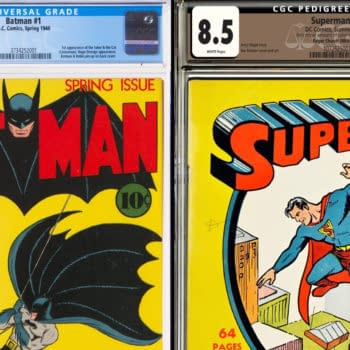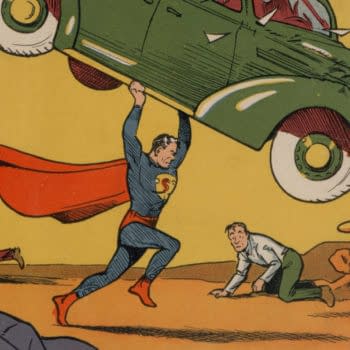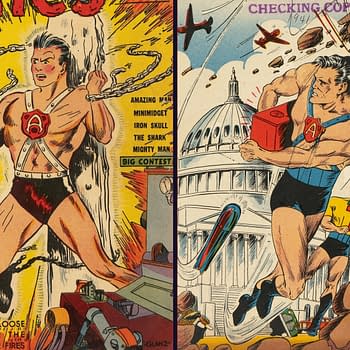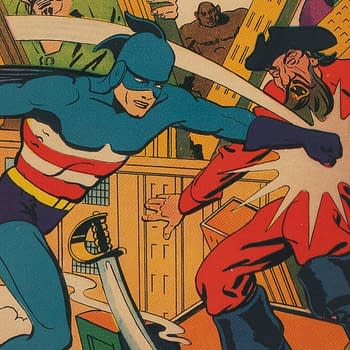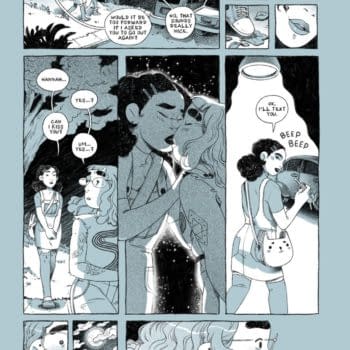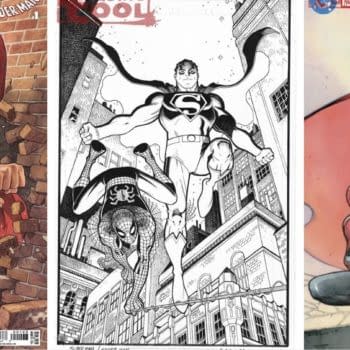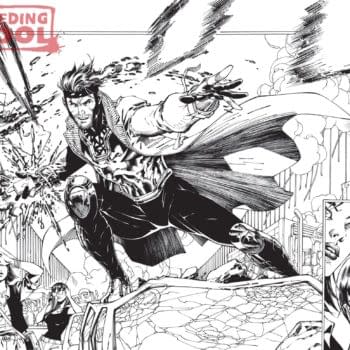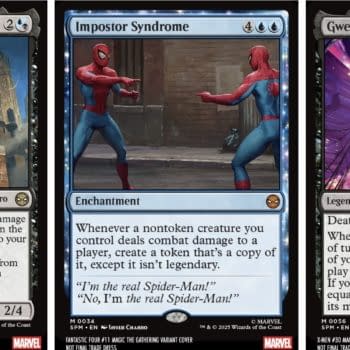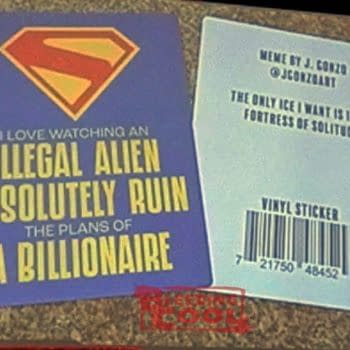Posted in: Comics, Heritage Sponsored, Vintage Paper | Tagged: gloria steinem, wonder woman
The Original Wonder Woman in Pants Controversy, Up for Auction
A decade ago, there was a lot of talk on the internet about whether Wonder Woman should wear pants. First, it was a reaction to the costume worn by the character as played by actress Adrianne Palicki in the unaired Wonder Woman TV pilot in 2011, and later that same year the New 52 reboot put the character in a costume that was briefly a departure from the familiar favorite look, amid suggestions that there had been an editorial edict that female characters should wear more practical clothing. But as Samuel Delany reminded us recently, that was hardly the first time that such controversies have come up. The character went through a dramatic reboot for a little over two years beginning in late 1968, which included losing both her powers and her iconic costume. The resulting run was both acclaimed and controversial, and there are two excellent high-grade examples of Wonder Woman issues from this unusual point in her history, Wonder Woman #196 (DC, 1971) CGC NM+ 9.6 White pages and Wonder Woman #199 (DC, 1972) CGC NM+ 9.6 Off-white to white pages up for auction in this week's 2021 December 5-6 Sunday & Monday Comic Books Select Auction #122149 at Heritage Auctions.
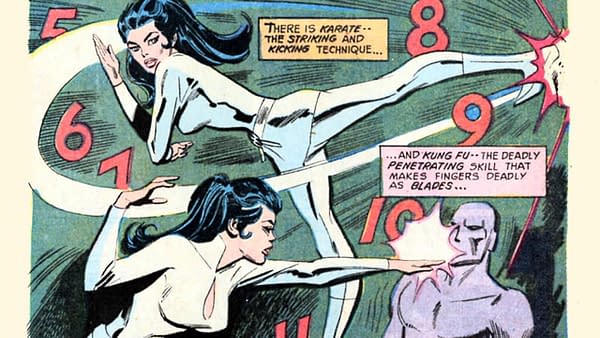
In Wonder Woman #169 cover dated Nov-Dec 1968, Queen Hippolyta summoned Wonder Woman to Paradise Island to inform her that the magic of the Amazons was exhausted and that they must "journey to another dimension to rest and renew" their powers. Wonder Woman decided to stay behind to continue to help Steve Trevor (spoiler alert: that didn't work out, as Steve was killed the next issue — series writer/artist/editor at the time Mike Sekowsky explained in a letter column the next year that Steve was "just too dumb and boring for the new Wonder Woman"), and underwent an Amazon "Rite of Renunciation", leaving her costume, her magic lasso, and her Amazon abilities behind. She proceeded to have adventures as an ordinary human who had trained herself in martial arts and wore ordinary clothes that changed from issue to issue — though she usually wore white.
Predictably, the move was controversial both inside and outside of comics, as a number of DC Comics' other titles also underwent transformations that attempted to make them more socially conscious and relatable for the readers of that era. As Newsweek would say in 1970, "Wonder Woman is wandering the world, minus her magic powers, as the quintessential women's liberationist. Lois Lane, spurned by Clark Kent for 32 years, has transformed herself into a black woman and now taunts Superman: 'Will you marry me? Just as I am?' [note: they are of course talking about the historically famous Lois Lane #105 'I Am Curious (Black)!' one-issue story here] The Green Lantern has forsaken his familiar galaxy to do battle with earthly problems. And the Lantern's sidekick, a Robin-Hood-styled crusader named Green Arrow, recently told off a city manager in unmistakably up-to-date terms: 'Man, you are stupid! Look — in some cities, the air is so foul that breathing is the equivalent of smoking two packs of cigarettes… Lake Erie's so polluted, there's virtually no marine life left… Mister, the Earth is in trouble!' For aficionados of the classic comic book — fantasists who prefer their super-heroes relentlessly irrelevant and implacably mindless — these are hard times."
The letters pages of the Wonder Woman title were of course focused on these changes for months afterward, and readers appeared to be divided about the move. But as Sekowsky explained to one letter column critic, "The Old Wonder Woman was a loser — she was a loser for so long the book was going to be dropped as a matter of fact. The sales figures on the new Wonder Woman now make her a winner." Despite this apparent success, Gloria Steinem lobbied DC Comics to revert the character back to the classic version in 1972. She told Vanity Fair in 2017:
We lobbied DC Comics publicly, by putting Wonder Woman on the cover [of Ms.] and reprinting some of her Golden Age stories, so girls plus women younger than I and Joanne Edgar, also a founder of Ms. who grew up on Wonder Woman, could see what they were missing. [We] also [lobbied] privately by lobbying Dick Giordano, who was then running all the DC Comics superheroes—with artists I always imagined chained by the ankle to drawing boards, churning out story after story—to stop making her into a powerless 1950s car hop. I remember him finally calling me at Ms. and saying something like, "O.K., she's got her magic lasso back to make people tell the truth, she's got her bracelets back to repel bullets, she's got Paradise Island back as her origin story—and a black Amazon sister named Nubia. Now will you leave me alone?" I also hope—but don't know—that we had something to do with the fact that the next head of DC Comics was a woman: Jenette Kahn.
And so it was that this curious but interesting era of a mortal Wonder Woman in street clothes came to an end. These issues are often overlooked by collectors but shouldn't be. Wonder Woman #196 (DC, 1971) CGC NM+ 9.6 White pages and Wonder Woman #199 (DC, 1972) CGC NM+ 9.6 Off-white to white pages are two examples of this history that are worthy of the attention of any serious collector, and they are up for bid now in the 2021 December 5-6 Sunday & Monday Comic Books Select Auction #122149 at Heritage Auctions.
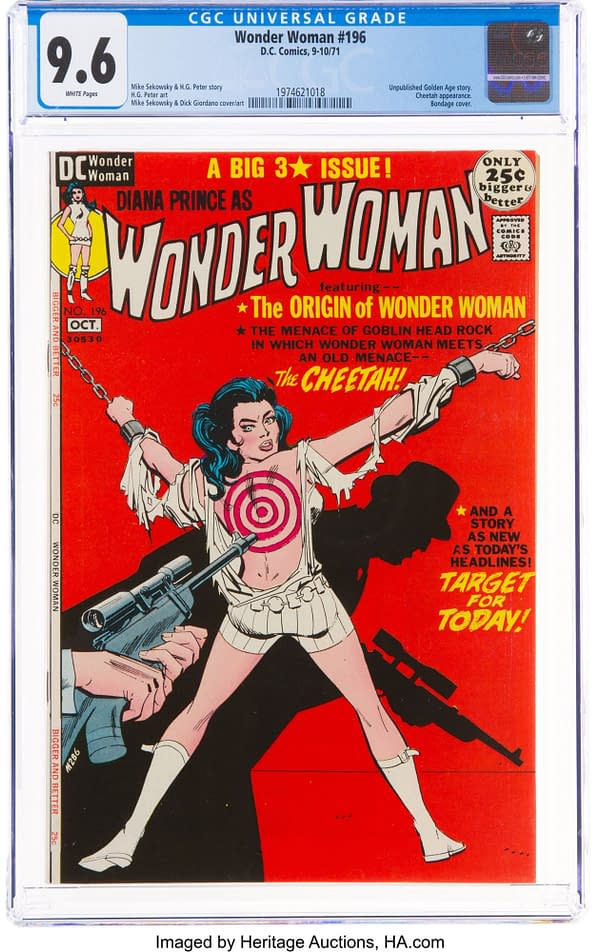
Wonder Woman #196 (DC, 1971) CGC NM+ 9.6 White pages. Mike Sekowsky cover and art. Contains a unpublished Golden Age story by H. G. Peter. Overstreet 2021 NM- 9.2 value = $130. CGC census 12/21: 12 in 9.6, 1 higher.
Wonder Woman #199 (DC, 1972) CGC NM+ 9.6 Off-white to white pages. Classic grey tone cover by Jeffrey Catherine Jones. Don Heck art. Overstreet 2021 NM- 9.2 value = $185. CGC census 12/21: 48 in 9.6, 23 higher.





